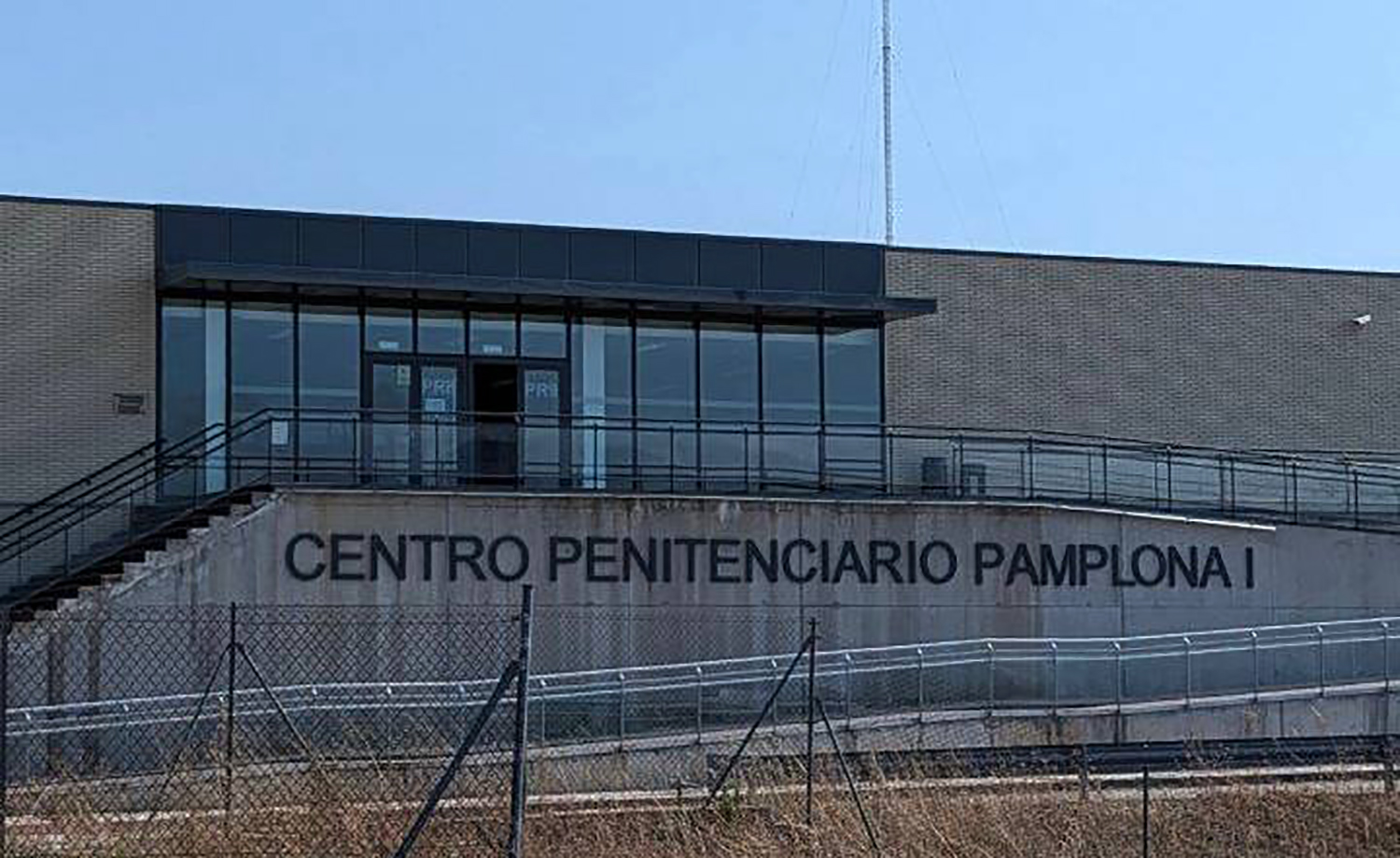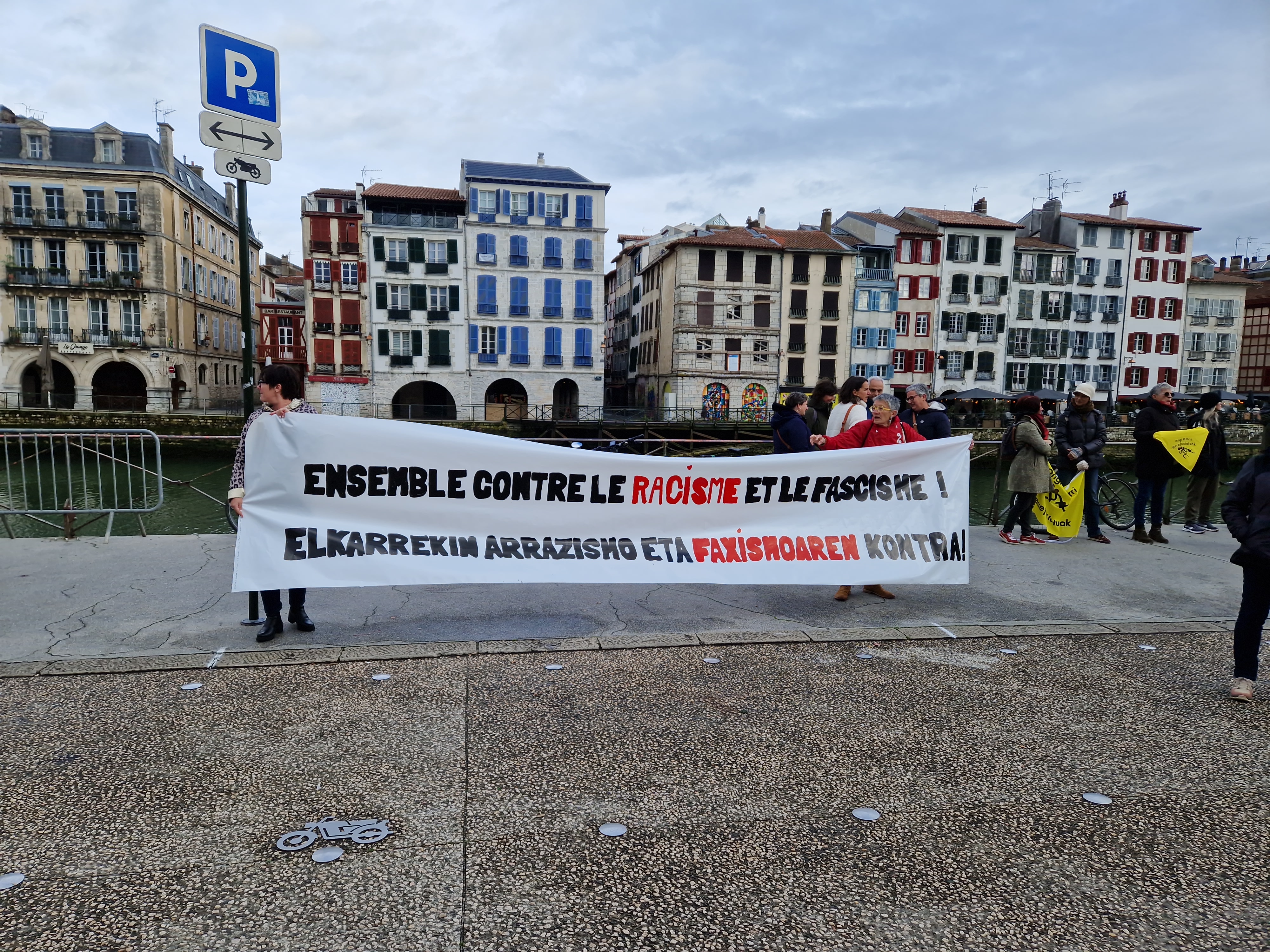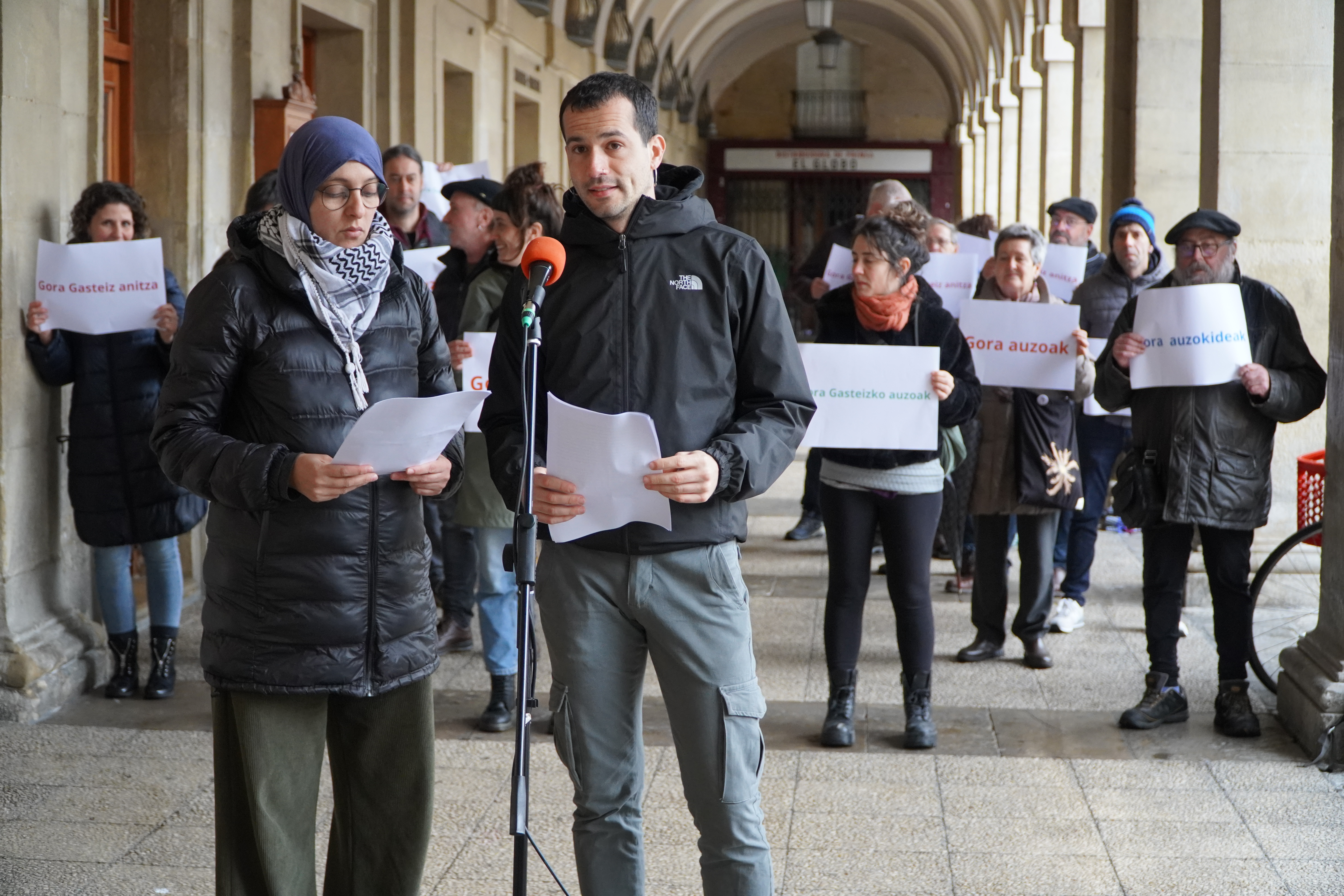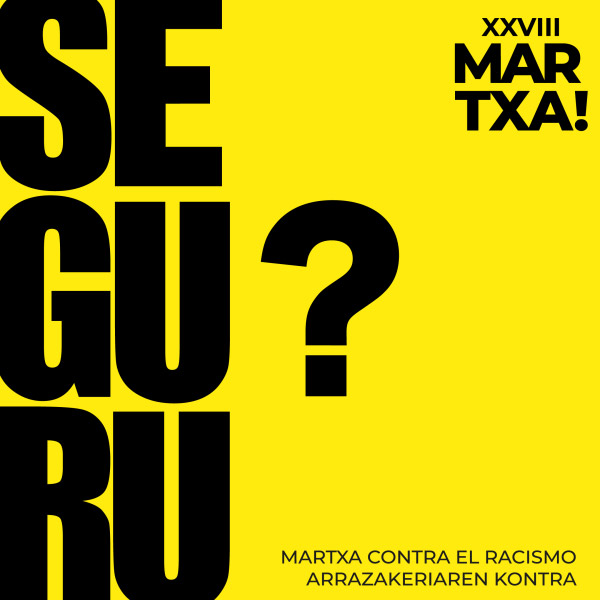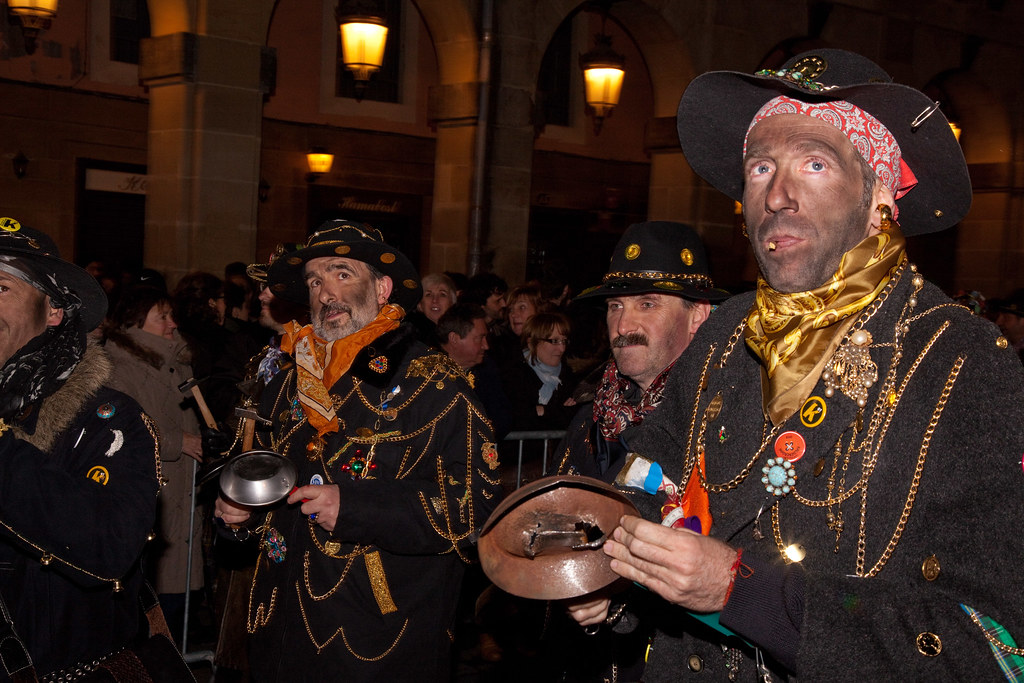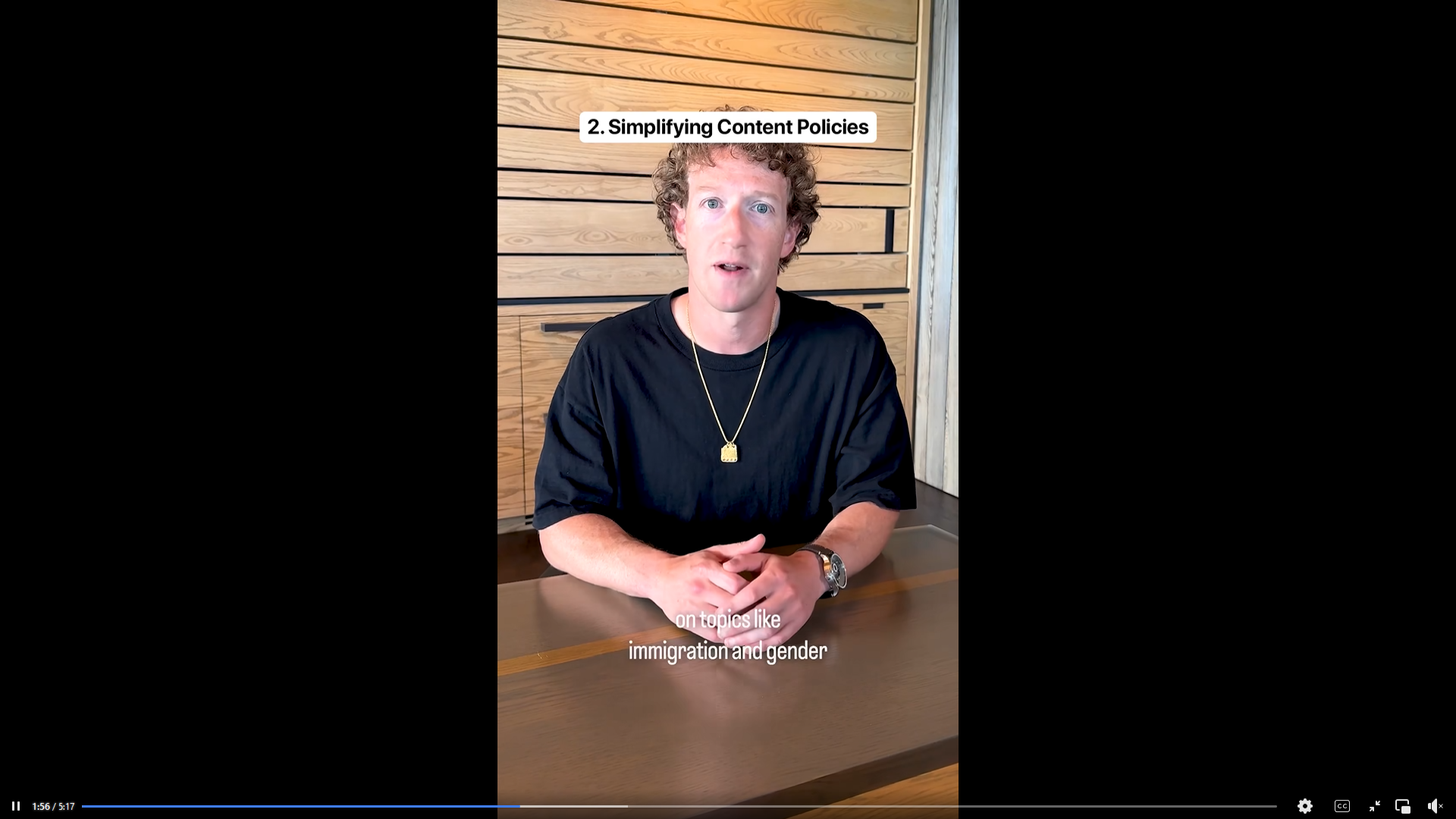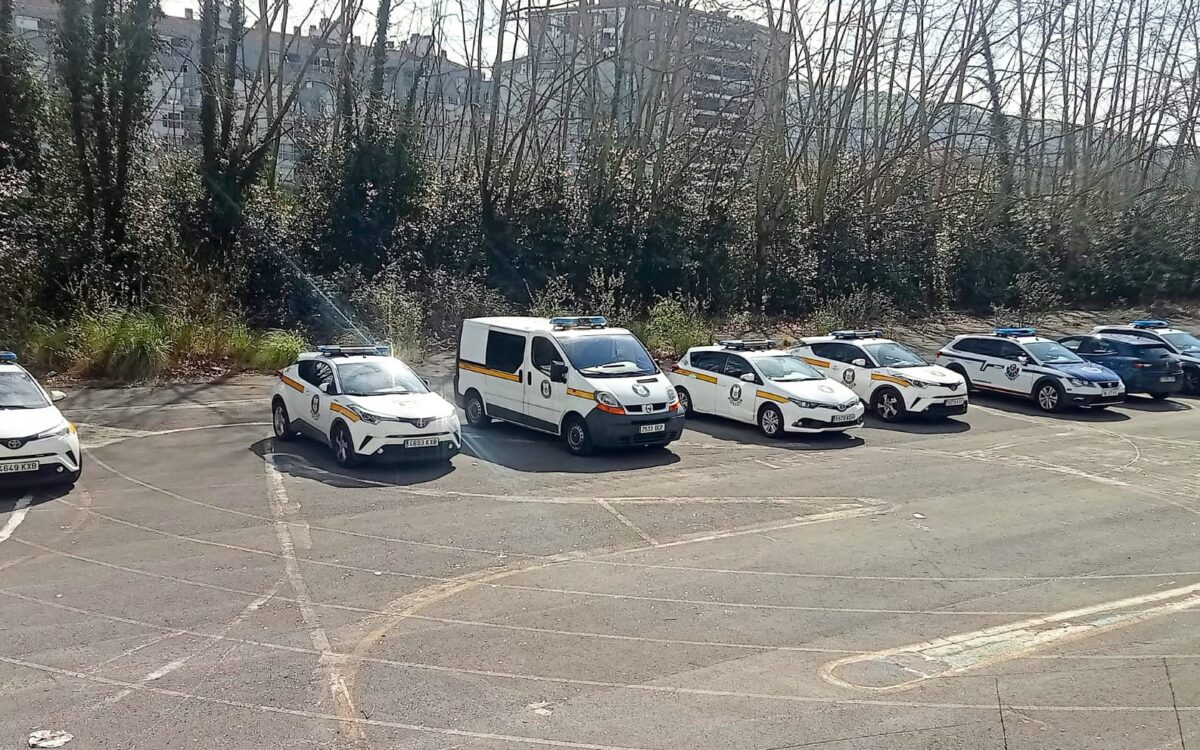“We claim to be allowed to carry on the street sale”
- On 18 April, the Mbolo Moye Doole Association called for a rally to denounce racism and police violence against Belarusian mantars.

On April 4, as many times, 30 young Senegalese were on Ledesma Street selling their products on the ground. Although the Municipal Guard of Bilbao usually passes, the Ertzaintza appears that day. When they saw the Ertzainas putting gloves on them, the young people realized they were looking for them. It was a device between the Ertzaintza and the Bilbao Municipal Police that counted a total of ten patrols and about 80 policemen, three of them with their head covered, with dogs without mocha. To talk about this, ARGIA met Boubacar Diouf (Dakar, 1971). He is one of the founders of the Mbolo Moye Doole association.
The concentration was organised on 18 April. What did you want to claim? Has harassment increased?
We called because on April 4 there were police persecutions against the manters. Lately yes, things have increased since last summer and the attitude of the police is being a little more aggressive. That day I wasn't in the place of the facts, but I've come up with videos where a lot of cops and Ertzaines look. 80 Ertzaines and cops came out with dogs and objects they usually touch.
How do the police behave with the manterers in general?
Their attitude cannot be defined, when they come, it depends on the day. Some are very aggressive, some are not. But we see in the video that people came to help and that many were arrested. What we least like is how they're treated. They put them to the ground, they were put a few minutes on top. Listen, you don't need to be aggressive with people.
What is the attitude of the institutions?
They say street selling is illegal. The only thing that institutions then transmit to the manteres is that they don't want us to sell them on the streets, and we say we do it to survive. And if laws and institutions prohibit us, we go wrong. Without papers, we are always told that we are illegal and irregular, we cannot work, we cannot do anything, and that is our only way of survival. We look for life on the street selling to survive. And all of this, the institutions, and especially the city council of Bilbao, does not want.

Has the demonstration influenced it?
We can say yes, there was a couple of media. It has been in some newspapers, I do not know if it has been on television. Of the police yes, but of the demonstration I don't know. In some digital channels, SOS racism I think on social media, and in some newspapers they've also taken it out. And most of all there were people, people from all over the place: Africans in general and Senegalese in particular. At our level it has influenced, but not the institutions or the city council.
What are your demands?
We claim our rights, especially that we are human beings like them and that we have the right to be here and to survive. Anyone who goes anywhere has the right to be there, to survive. And our way of survival is that. We demand that we be allowed to carry out our activities, to survive, to respect ourselves as citizens and individuals and to respect our rights. This is a progressive country and it is a country of human rights, but it looks like something written or something spoken, when people are left alone, because there is no respect for those rights. In addition, here are a lot of illegalized people, a lot of homeless people without registration. And we also reclaim those things, especially the social census.
What are the main challenges for street vendors?
We want it to be a challenge, decent work and a refuge, like any immigrant here or Basque citizenship. Because the hardest thing for us is the law on aliens, which has its own rules and norms. They ask you for a stay of so many years to be able to do so, and one of our challenges is to reach those three years to live and get decent work and stop living on the street.
Segurtasun falta dagoen irudipena handitu dela azaldu du Eustaten azken txostenak. Gurean, Trapagaranen, Segurtasuna orain, delinkuenteen aurka manifestaziora deitu dute herritar batzuek.
Bi izan dira sentsazio hori zabaltzeko arrazoiak. Batetik, udalak Udaltzaingoaren... [+]
Hirurehun bat pertsona hurbildu ziren jende katea osatzeko Marengo eta Pannecau zubien artean.
Hainbat kolektibo daude Gasteiz Anitzaren atzean. Egoera larrien aurrean "soilik poliziaren esku hartze gehiago" eskatzen duen eta "eskubideen urraketei entzungor" egiten dion ereduaren aurrean, beste praktika eredu bat egiteko saiakera dela adierazi dute... [+]
Trintxerpen hasi eta Donostian bukatu da hainbat kolektibok deitutako XXVIII. Arrazakeriaren Kontrako Martxa.
Hurrengo ariketa egin ezazu zure lantokian, euskaltegian edo gimnasioan:
Altxa eskua Minneapoliseko George Floyd nor den dakizuenok.
Altxa eskua Madrilgo Mame Mbaye nor den dakizuenok.
Altxa eskua Barakaldoko X nor den dakizuenok.
Mame Mbaye manteroa duela zazpi urte... [+]
1960ko martxoaren 21ean, Hegoafrikako Poliziak 69 lagun hil zituen apartheidaren kontrako manifestazio baketsu batean. Ordutik, egun hori Arrazakeriaren eta Xenofobiaren Nazioarteko eguna ospatzen da, aldarrikapenez beteta. SOS Arrazakeriak urtero gai ezberdin bat lantzeko... [+]
Lau turistak eraso zieten jatorri pakistandarreko hainbat langileri, Lekeitioko Gazte Asanbladak salatu duenez.
Hamasei migrante atxilotu zituzten otsailaren 6an Baionan, etorkinen eskubideen aldeko elkarteek salatu dutenez. Dirudienez, Baionako prokuradoreak eman zuen agindua. Operazioa autobus geltokiaren eta Pausa harrera zentroaren artean gauzatu zuen poliziak, tartean, adingabekoak... [+]
I don't want my daughter disguising herself as a Gypsy in the caldereros. I don’t want Gypsy children at my daughter’s school to dress up as Gypsies in caldereros. Because being a gypsy is not a disguise. Because being a gypsy is not a party that takes place once a year, with... [+]








